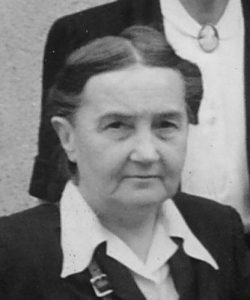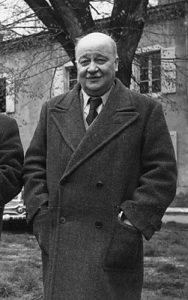A students' association readily accepting mixed groups
The access of young women to the highest University degrees – the first to get it was the protestant Geneviève Bianquis in 1908, and the associations they created led them to taking part in discussion panels.
10 years after the Fédé was created, young women took part in committees, and also had more and more responsibilities, thus overcoming the strong resentment of conservative people against women “having the floor”.
Though the head of the Fédé generally was a man – the main position being that of secretary general – and though male writers set the guidelines for the movement in magazines such as Hic et Nunc and Le Semeur (The Sower), many first rank protestant women were trained at the Fédé.
Suzanne de Dietrich (1891-1981) and Madeleine Barot (1909-1995) both took part in founding major protestant charities, among which the Cimade. Elisabeth Schmidt (1908-1986) who was born in an agnostic family, but converted after meeting Pierre Maury and Suzanne de Dietrich, was to be the first ordained pastor in 1949.
The role of the Fédé in theological matters
From the beginning the aim of the movement was towards evangelising, outside the traditional church framework. The Fédé claimed to be a place for debates and to be open to the world. It also played an important theological role. Indeed pastor Pierre Maury (1890-1968), who was secretary general between WWI and WWII, translated and circulated the works of the outstanding German theologian Karl Barth (1896-1968), which were readily accepted. The theology opposed to the liberal and social-christian trends, which prevailed in the 1930s, stirred up difficult and sometimes painful debates within Protestantism.
The Fédé's role in its epoch
The successive heads, namely Charles Westphal (1896-1972), Georges Casalis (1917-1987), Jean Bosc (1910-1969), Roland de Pury (1907-1979), André Dumas (1918-1996) and Jacques Maury (born in 1920), always induced reflection on present problems. The Fédé clearly expressed its often radical opinion on theological as well as political problems concerning men and women. It supported conscientious objectors, decolonisation, opening to the communist countries and ecumenicalism. Thus it was considered as a place for training, and for approaching contemporary society through criticism and understanding.


